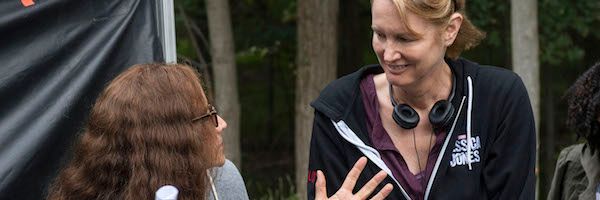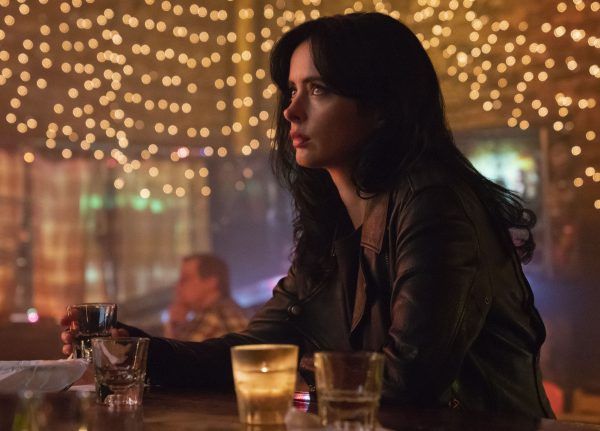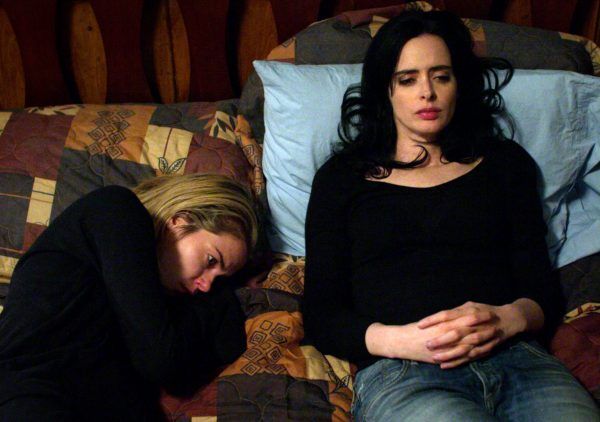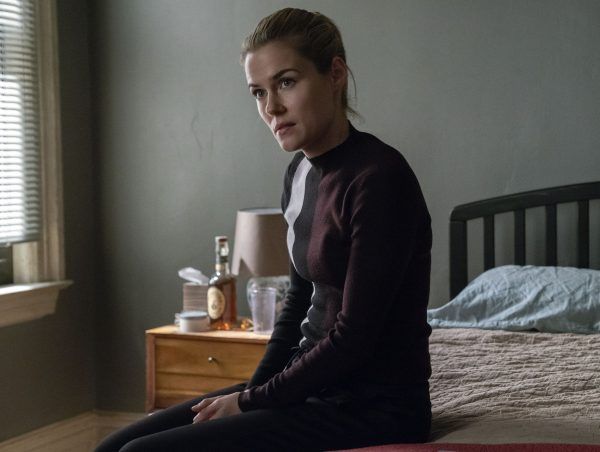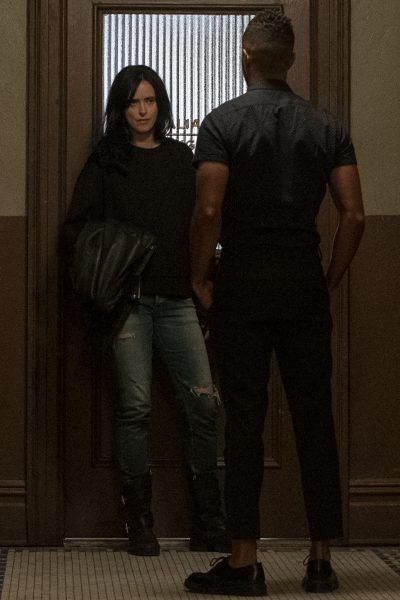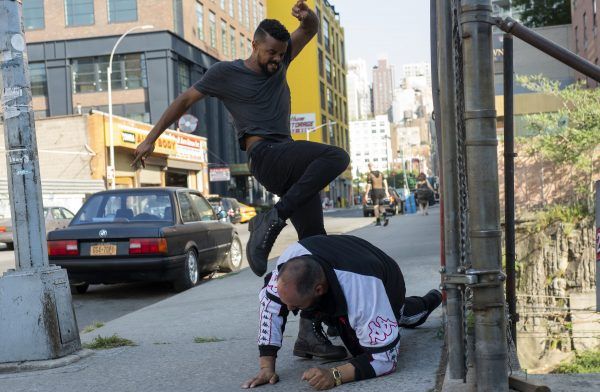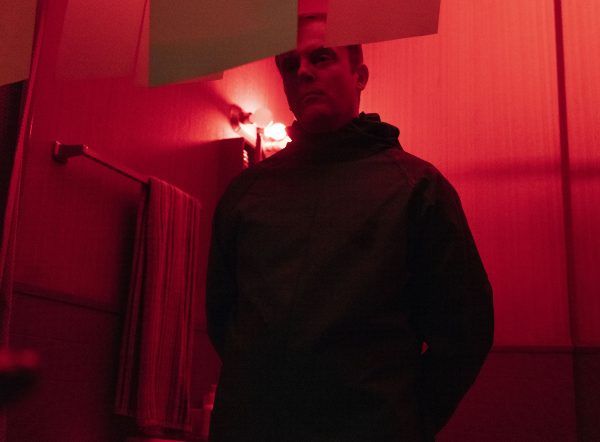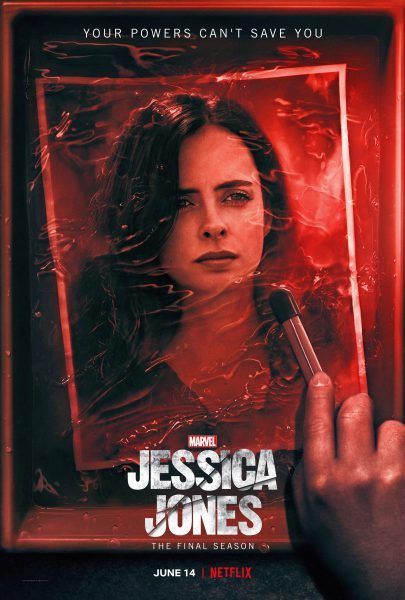Executive produced by showrunner Melissa Rosenberg and Marvel’s Head of Television Jeph Loeb, Marvel’s Jessica Jones (available to stream at Netflix) is back for a third season, as Jessica Jones (Krysten Ritter) crosses paths with a highly intelligent and very deadly killer. At the same time, Jessica has cut the newly powered Trish (Rachael Taylor) out of her life, as she struggles to live up to her mother’s expectations for being a hero, but in order to survive the madman who wants to put an end to the super-powered, the two must find a way to repair their fractured friendship and work together.
At the Los Angeles press day for the show’s final season, Collider got the opportunity to sit down and chat 1-on-1 with Melissa Rosenberg about how the story for Season 3 developed, getting to explore the contrast between Jessica and Trish when it comes to having powers, the tension in their friendship and how that affects things this season, figuring out who the villain would be, when they learned this would be the final season, watching Krysten Ritter direct an episode this season, and what stories she’s looking to tell next.
Collider: How did the seed for this season get planted? At what point, along the way, was this the story you decided you wanted to tell for Season 3?
MELISSA ROSENBERG: When we looked at the whole, Season 1 and 2 were very much about dealing with past trauma, and origins and history and looking back. So, this season, as part of the whole, we wanted to look forward and really take all of the work that Jessica’s done and let her try to fit it into the world. At the end of Season 2, the last thing that her mother said to her was, “Being a hero is giving a shit and doing something about it,” so now she’s trying to do something about it. So, it all fits very much into our three-season run and the arc of our characters.
Was that something you had thought about, from the beginning, or was it somewhere along the way of Season 2, that you decided you wanted to look more forward?
ROSENBERG: We wanted to mine every aspect of the character. So, the first season was dealing with the more immediate trauma of Kilgrave. And then, Season 2 was dealing with family and, “Who am I?” And this season is very much about, “What am I doing, going forward? Who am I in the world?” It’s all very much of a piece.
Does it feel, by the end of the season, that Jessica will have a better idea about what that means, or is she still just as unsure of what that means?
ROSENBERG: She has an arc and a journey that she goes through. So much of what this season is doing, trying several different paths, like with Trish dealing with a very similar issue, trying to put herself into the world, but from a very different perspective, will give both of them a sense of what their place is in the world, and at the very least, what not to do.
What was the fun of getting to explore that contrast between how Jessica has dealt with things and how Trish is dealing with them, especially as somebody who actually wanted what she now has?
ROSENBERG: Exactly! Over the course of Seasons 1 and 2, Trish has been this moral guide for Jessica. She’s been the moral compass for her because Jessica’s always lived in this nonlinear world of shades of gray while Trish has had much more of the perspective of black and white. So, it’s natural that it would all come together, with Trish having powers. Her idea of what a hero is, is very black and white, good or bad, whereas part of Jessica’s struggle is, how do you know who’s good or bad, and what’s right or wrong? So, it’s a great exploration and culmination of that relationship and those characters.
Seeing the two of them figure out how to deal with each other, while they’re dealing with all of that, is fun to watch because their friendship has been the heart of the show and seeing the position it puts them both in is really interesting to watch.
ROSENBERG: Yeah, you have Jessica, who’s always dealt with stuff like, “Pow, pow, pow,” basically just smashing in someone’s face, now she’s dealing with a villain who is very real-world, and he knows the law. He’s a civilian, but he knows how to utilize real-world boundaries and machinations and laws, and she’s having to play within that field. And then, Trish is like, “Are you just gonna go and dangle someone off the side of a building?” It’s interesting that Jessica is now in a position of having to say, “No, we can’t do it that way.”
How did you decide on and develop the villain, this season?
ROSENBERG: We don’t want to repeat ourselves, so every season, we’re always pushing the journeys of the characters, and what Jessica is dealing with and who she’s interacting with. This is a character who has no powers. When you have a villain who has powers and you have powers, you’re really outside of the scope of law and you have your own set of rules. But in this case, you’re dealing with someone who has no powers. He’s just a regular human being, albeit with a brilliant intellect. He’s a more traditional bad guy, so how do you approach that? If you’re powered, it almost doesn’t matter that you’re powered. You can’t go and just beat the crap out of him, as much as you want to. You can’t even threaten him without getting cited by the law.
Was casting also a really important component in how creepy that character would be?
ROSENBERG: Yeah, Jeremy Bobb is so good. It was such a juicy role, so we were looking at all sorts of people. I was also really open to who would play it. It really could have been any age, and any person. It could have been anybody. Our casting was quite big, initially, and people were putting themselves on tape. Jeremy had put himself on tape, back east, and myself and Jeph [Loeb] and everybody else went, “That’s it. I don’t even know who the character is, but that’s the character.” He showed up as who the character was, and we just hired him. We really worked with him a lot on the character and dug into the character, and he contributed a great deal, in terms of how to approach this character and what makes him tick. Jeremy was very much a participant in building the character.
I love Malcolm’s journey, this season, because it’s such an interesting one and you can really get a sense of just how far he’s come. He seems like the character that’s really come the furthest since we first met him. What’s most surprised you about his journey? Did you expect him to end up where he did?
ROSENBERG: Not at all. We were really following that character rather than leading. We would just always look at him in each season and talk about, “Who is he now, and where would he authentically go?” It was the perfect marriage of actor and character, and the story just kept coming with him. He’s such an important relationship for Jessica because he brings out a certain aspect of her character that is essential to the show. All three seasons were very much a coming of age story for him, and I think we come to the end of Season 3 with a really full arc for him. To be able to fill him out and find out his different levels and facets was really fun.
At what point, along the way, did you know that this would be the end of the story? Was it during the creative process, so that you could write toward that?
ROSENBERG: Yes. It was going to be my last season, in any event, because I was moving on to Warner Bros., but then it became the last season for the show, as well, which enabled us to really look at, “Where do we want to leave each of these characters? If you look at all three seasons, as whole, what feels like a complete journey for all of the characters?” We really got a chance to land them, in a satisfying way, for us and, hopefully, for the audience.
Did that also give you a sense of closure, as opposed to feeling like you never really got to finish things?
ROSENBERG: Exactly, it did. We found closure with it. It was just really gratifying, and it felt very honest.
Before doing this version of this story, you’d talked about how you wanted to tell the story of this character as a TV series, for a few years. Now that you have these three seasons, what’s it like to look back on what you thought it could be? How does it feel, as far as being a complete project?
ROSENBERG: It’s overwhelming, in the most extraordinary way. I went into it wanting to tell a story about this character and this set of characters, and looking back on it and seeing its relevance in the world, it came about at the time of a lot of revelations for women. It felt like it just was meant to be, in this time, and it enabled myself and the actors and the other writers to have a platform, to move the needle, and to talk about socially relevant stuff. Not that that was even our intention, going in, but that’s what it became, and I just could not possibly have been more proud of it. It’s definitely a pinnacle of my life and my career.
And the show definitely has some pretty great fans, so what’s it like to have that fan feedback and to hear from people who not only love the character, but who can identify with so many different issues that it explores?
ROSENBERG: That’s really the most extraordinary part about it, connecting with fans, in that way, and being able to give them a voice and permission to really see things in an honest way and experience them. That was what the #MeToo movement really was, in many ways. It was about saying, “No, your experience is valid. It’s real. I believe you.” That was the story we were telling, all along, so it was just incredible to see how it all dove-tailed together. You always want to contribute something, and that we were able to do that is pretty amazing.
The relationship that you’ve had with Krysten Ritter, from the beginning, has been very collaborative. You guys seem to share the same brain, when it comes to what you want for the show. What was it like to see her step into the position of director and collaborate with her, in that sense?
ROSENBERG: It was amazing. It was one of the most creative collaborations that I’ve had with a director because she and I know the show the same way. We share the same voice and the same brain, in terms of what the show is and who these characters are, so there was a shorthand that we were able to have. We were pushing each other to find new things in it. Because that episode was a little bit of a stand-alone because we broke perspective, and it’s in Trish’s perspective with voice-over, she had permission, as a director, to break with some of our visual language and style. She was really freed up, and she might as well have been directing for the last 10 years. She just really naturally fit. It was as easy to transition into directing for her, as I’ve ever seen. She really understands visual storytelling, and she obviously works with the actors beautifully, but it was something to behold. That woman is a powerhouse. She is a quadruple threat.
Where do you go from here? Have you thought about whose story you want to tell next?
ROSENBERG: I want to do something different. I always want to reinvent, and figure out what I haven’t done yet and what the possibilities are. I’m over at Warner Bros. now, and so far, I’m really liking the folks over there. It feels really creative. I’ve got some stuff in the works. I love genre, and I love complex roles for women, in front of and behind the camera, not that I’ll always write in that vein, but I like the equity. Anything that I do is going to be balanced. I love characters. I just love really complex, damaged, interesting, flawed, aspirational characters, as well.
Marvel’s Jessica Jones Season 3 is available to stream on June 14th.

